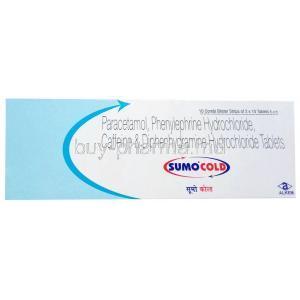Xylometazoline
Uses
Xylometazoline Nasal Drops is used in the treatment of common cold and Nasal congestion, where it relieves the symptoms of stuffy nose caused by it.
How it Works
Xylometazoline Nasal Drops is known as a nasal decongestant, it helps to decrease swelling and relieve congestion by narrowing the blood vessels in the nasal cavity. Xylometazoline Nasal Drops also helps to reduce mucus production which helps to soothe a blocked nose. Xylometazoline Nasal Drops is used in the treatment of common cold, however it can also be used to treat nasal symptoms due to sinusitis and allergies (such as hay fever). Xylometazoline Nasal Drops helps the small blood vessels in the nose to become narrower, this reduces the thickness of the lining in the nose which is causing the congestion, and relieves the blocked-up feelings.
Common Side effects
Patients who take Xylometazoline Nasal Drops may suffer from such side effects;
Soreness,
Tingling sensation,
Sneezing,
Headache,
Nasal dryness,
Itchiness affecting the nose,
A slight burning sensation in the nose
Introduction
Xylometazoline belongs to a medication class of nasal decongestants. It is applied through the nose, either as a spray or as drops. It is used to treat stuffy nose caused by allergies, sinusitis, or the common cold. It constricts the blood vessels of the nose, which in a dilated condition, causes congestion of the nose.
Use
Xylometazoline nasal spray is indicated to relieve nasal congestion due to the common cold, hay fever, upper respiratory tract infection, or sinus infection. It also comforts when experiencing nasal discomfort caused by dryness of the nasal mucosa. This spray is a decongestant. It works by constricting the congested blood vessels of the nose, which swells during an infection or allergy. This results in the relief of congestion (stuffy feeling) and improved breathing. It mimics the form of adrenaline and binds to alpha-adrenergic receptors of the nasal mucosa. It mimics the sympathomimetic effects of adrenaline by causing vaso-constriction of the vessels.
Dosage and administration
Use the spray exactly as directed by the doctor. Sit down and place the tip of the spray into one of the nostril. Use the finger of the opposite hand to close the other nostril. Breathe in gently and release a spray of the medicine into the nose. Do not blow the nose for at least 10 minutes after a spray. When using more than one spray dose, wait for about a minute between consecutive sprays. After using the spray, rinse the tip of the spray with warm water and wipe it with a clean tissue before reusing it. Do not continue to use the drug if the symptoms do not show any relief in 5 days.
Warning
Inform the doctor before being prescribed this medication about any allergy to this drug or to any other substances.
Discuss your medical history with the doctor, particularly if there is any history of hyperthyroidism, hypertension, cardiac problems, any liver or kidney disorders.
Do not take more than the prescribed dose in a day since this may lead to reduced effectiveness of the drug. This may lead to a reduction in the number of receptors in the nose and if the drug is withdrawn suddenly, then there might be extreme symptoms of nasal congestion. This condition is called as rhinitis medicamentosa.
Pregnant women and breast feeding mothers are to use this medication only if it has been prescribed by the doctor.
Although rare but in case of any adverse reactions like dizziness, mood changes, headaches, tremors, or any hypersensitivity reactions, the patient is advised to consult the doctor immediately and discontinue the use of the drug.
Discuss your medical history with the doctor, particularly if there is any history of hyperthyroidism, hypertension, cardiac problems, any liver or kidney disorders.
Do not take more than the prescribed dose in a day since this may lead to reduced effectiveness of the drug. This may lead to a reduction in the number of receptors in the nose and if the drug is withdrawn suddenly, then there might be extreme symptoms of nasal congestion. This condition is called as rhinitis medicamentosa.
Pregnant women and breast feeding mothers are to use this medication only if it has been prescribed by the doctor.
Although rare but in case of any adverse reactions like dizziness, mood changes, headaches, tremors, or any hypersensitivity reactions, the patient is advised to consult the doctor immediately and discontinue the use of the drug.
Side effects
Nose dryness
Burning or stinging sensation in the nose
Prolonged sneezing
Runny nose
Itchiness
Rashes
Headaches
Burning or stinging sensation in the nose
Prolonged sneezing
Runny nose
Itchiness
Rashes
Headaches






















